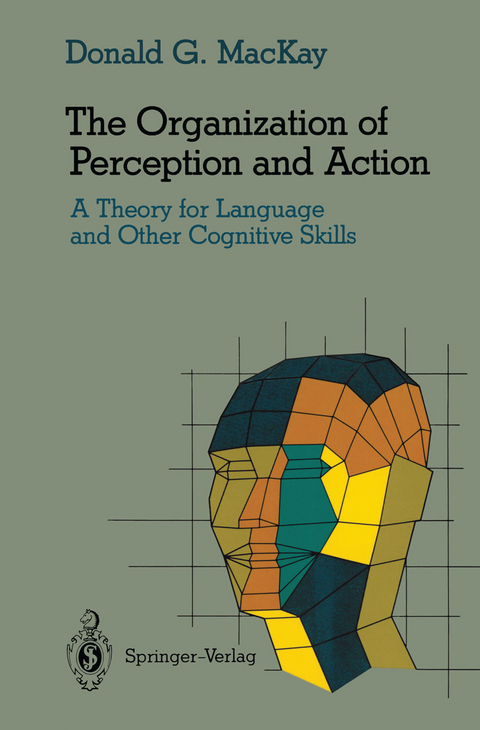
The Organization of Perception and Action
A Theory for Language and Other Cognitive Skills
Seiten
1987
|
Softcover reprint of the original 1st ed. 1987
Springer-Verlag New York Inc.
978-0-387-96509-3 (ISBN)
Springer-Verlag New York Inc.
978-0-387-96509-3 (ISBN)
Do perception and action share some of the same cognitive structures? The Organization of Perception and Action provides a coherent and innovative synthesis of available data, challenges classical theories, and offers new insights into relations between language, thought, and action.
Do perception and action share some of the same cognitive structures? What is the relationship between cognitive processes for sequencing, timing, and error detection in perception and action? Such issues form the basis for this fresh and absorbing study of the perception and production of language and other cognitive skills such as chess and piano playing. The Organization of Perception and Action provides a coherent and innovative synthesis of available data, challenges classical theories, and offers new insights into relations between language, thought, and action. Its broad, interdisciplinary approach and wealth of detailed examples extend from the motor control of typing to the role of attention in perception and action and the flexibility of conscious vs. unconscious processes. Not only researchers, but anyone with a general interest in the cognitive and brain sciences will find in this book new and interesting insights into topics long considered fundamental to psychology and related disciplines.
Do perception and action share some of the same cognitive structures? What is the relationship between cognitive processes for sequencing, timing, and error detection in perception and action? Such issues form the basis for this fresh and absorbing study of the perception and production of language and other cognitive skills such as chess and piano playing. The Organization of Perception and Action provides a coherent and innovative synthesis of available data, challenges classical theories, and offers new insights into relations between language, thought, and action. Its broad, interdisciplinary approach and wealth of detailed examples extend from the motor control of typing to the role of attention in perception and action and the flexibility of conscious vs. unconscious processes. Not only researchers, but anyone with a general interest in the cognitive and brain sciences will find in this book new and interesting insights into topics long considered fundamental to psychology and related disciplines.
1. Theoretical Antecedents.- 2. The Structure of Perception and Action.- 3. The Sequencing of Action.- 4. Perceptual Sequencing and Higher Level Activation.- 5. The Temporal Organization of Perception and Action.- 6. Asymmetries Between Perception and Action.- 7. The Functions of Mental Nodes.- 8. Self-Inhibition and the Recovery Cycle.- 9. Perceptual Feedback in the Detection and Correction of Errors.- 10. Disruptive Effects of Feedback.- Epilogue.- References.- Index of Names.
| Erscheint lt. Verlag | 1.7.1987 |
|---|---|
| Reihe/Serie | Cognitive Science |
| Zusatzinfo | XXII, 234 p. |
| Verlagsort | New York, NY |
| Sprache | englisch |
| Maße | 155 x 235 mm |
| Themenwelt | Geisteswissenschaften ► Psychologie ► Allgemeine Psychologie |
| Geisteswissenschaften ► Psychologie ► Verhaltenstherapie | |
| Mathematik / Informatik ► Informatik | |
| ISBN-10 | 0-387-96509-2 / 0387965092 |
| ISBN-13 | 978-0-387-96509-3 / 9780387965093 |
| Zustand | Neuware |
| Informationen gemäß Produktsicherheitsverordnung (GPSR) | |
| Haben Sie eine Frage zum Produkt? |
Mehr entdecken
aus dem Bereich
aus dem Bereich
Techniken der Verhaltenstherapie
Buch (2024)
Julius Beltz GmbH & Co. KG (Verlag)
35,00 €


